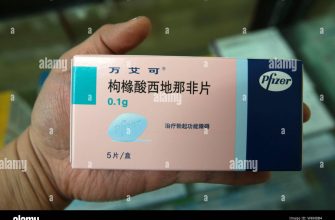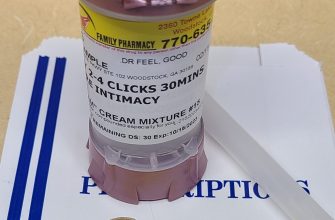No, don’t take 100mg of Viagra if your doctor hasn’t prescribed it. The recommended starting dose is typically much lower, often 50mg or even 25mg. Higher doses aren’t necessarily better and can significantly increase the risk of side effects.
Consider this: Viagra’s effects stem from increased blood flow. A higher dose doesn’t proportionally increase effectiveness; instead, it raises the chances of experiencing adverse reactions like headaches, flushing, nasal congestion, and visual disturbances. In some cases, more serious side effects such as prolonged erection (priapism) are possible. This is a painful condition requiring immediate medical attention.
Always consult your doctor before adjusting your dosage. They can assess your individual health needs and determine the safest and most effective dose for you. They’ll consider factors like your age, overall health, and any other medications you’re taking. Self-adjusting your dosage can be dangerous and may lead to unexpected and undesirable consequences. Prioritize your health and follow your doctor’s guidance for safe and responsible Viagra use.
- 100 mg Viagra: Too Much? Understanding the Dosage
- Higher Dose Side Effects
- Dosage Adjustment
- Alternative Treatments
- Viagra Dosage Recommendations and Why 100mg Might Be Excessive
- Potential Side Effects of Taking 100mg of Viagra
- Cardiovascular Side Effects
- Visual and Other Side Effects
- Drug Interactions
- Alternatives to High-Dosage Viagra: Exploring Other Treatment Options
- Lifestyle Changes and Alternative Therapies
- When to Consult a Doctor About Viagra Dosage
100 mg Viagra: Too Much? Understanding the Dosage
For most men, the recommended starting dose of Viagra is 50 mg. 100 mg is considered a higher dose and may not be appropriate for everyone. Your doctor determines the right dosage based on your individual health and medical history. They’ll consider factors like your age, overall health, and any other medications you’re taking.
Higher Dose Side Effects
Increasing the dose to 100 mg increases the chance of experiencing side effects. Common side effects include headache, facial flushing, nasal congestion, and indigestion. More serious, though less frequent, side effects can include vision changes, hearing loss, and prolonged erection (priapism). If you experience any concerning side effects, stop taking the medication and contact your doctor immediately.
Dosage Adjustment
Your doctor might prescribe 100 mg if 50 mg proves ineffective. However, they will carefully monitor you for side effects. It’s crucial to follow their instructions precisely. Don’t adjust your dosage yourself. If 100 mg still doesn’t produce the desired results, they may explore alternative treatment options.
Alternative Treatments
Several other medications treat erectile dysfunction. If Viagra isn’t suitable or doesn’t work effectively, your doctor can discuss alternatives like Cialis, Levitra, or injections. They’ll help you find a treatment plan that works best for your needs and minimizes potential risks. Open communication with your doctor is key to safe and effective treatment.
Viagra Dosage Recommendations and Why 100mg Might Be Excessive
The standard starting dose for Viagra is 50mg. Many men find this dose effective. Doctors often adjust dosage based on individual responses and medical history.
A 100mg dose is the maximum recommended dose. Increasing to this level should only happen after a consultation with a physician and only if the 50mg dose proves insufficient.
Taking 100mg might be excessive because it increases the risk of side effects without necessarily providing greater benefit. Common side effects include headaches, flushing, nasal congestion, and visual disturbances. Higher doses significantly raise the probability of experiencing these, and potentially more severe, side effects.
Your doctor will consider factors like your age, overall health, and other medications you’re taking when determining the appropriate Viagra dose. They will balance the potential benefits against the risks associated with a higher dose.
Always follow your doctor’s instructions regarding dosage. Never increase the dose yourself without medical guidance. If you experience any adverse effects, contact your doctor immediately.
A lower dose might be equally effective and safer for you. Don’t assume a higher dose is automatically better.
Potential Side Effects of Taking 100mg of Viagra
Taking 100mg of Viagra can significantly increase the risk of side effects compared to lower doses. Common side effects include headaches, flushing, nasal congestion, and indigestion. These usually are mild and temporary. However, higher doses increase the likelihood of experiencing more severe reactions.
Cardiovascular Side Effects
Increased blood pressure and heart rate are potential concerns, especially for individuals with pre-existing cardiovascular conditions. Chest pain, irregular heartbeat, and even stroke are rare but possible complications. If you experience any chest discomfort or irregular heartbeat, seek immediate medical attention. Always consult your doctor before taking Viagra, particularly if you have heart problems.
Visual and Other Side Effects
Visual disturbances such as blurred vision, changes in color perception, and light sensitivity are possible. Less common side effects include dizziness, muscle aches, back pain, and prolonged erection (priapism), a painful condition requiring immediate medical help. Hearing problems such as ringing in the ears (tinnitus) have also been reported, though rarely.
Drug Interactions
Specific medications, including nitrates used to treat angina, interact dangerously with Viagra. Combining them can cause a drastic drop in blood pressure, potentially leading to serious complications. Discuss all your medications with your doctor before using Viagra to avoid such interactions.
Alternatives to High-Dosage Viagra: Exploring Other Treatment Options
Consider lower doses of Viagra or other PDE5 inhibitors like Cialis or Levitra. Starting with a lower dosage often proves sufficient and minimizes potential side effects. Your doctor can help determine the optimal dose for your individual needs.
Lifestyle Changes and Alternative Therapies
Dietary adjustments, including reducing saturated fats and increasing fruits and vegetables, can positively impact cardiovascular health, a key factor in erectile function. Regular exercise, maintaining a healthy weight, and limiting alcohol consumption are also beneficial. Some men find that stress management techniques, such as yoga or meditation, improve their sexual health.
Penile injections with medications like alprostadil offer another treatment option. This involves self-administering medication directly into the penis to promote an erection. However, this method carries a slightly higher risk of side effects, such as pain or bruising, compared to oral medications. Your doctor will discuss the potential risks and benefits with you.
Vacuum erection devices (VEDs) provide a non-invasive alternative. A plastic cylinder is placed over the penis, and a pump creates a vacuum, drawing blood into the penis and causing an erection. This method requires patience and practice but can be a successful option for many.
Finally, penile implants are a surgical solution providing a permanent solution for erectile dysfunction. This involves surgically implanting inflatable or malleable rods into the penis. This is generally a last resort, considered after other treatment options have been explored.
When to Consult a Doctor About Viagra Dosage
Contact your doctor immediately if you experience any of the following after taking Viagra:
- Chest pain
- Sudden vision loss
- Prolonged or painful erection (priapism) lasting more than 4 hours
- Sudden hearing loss
- Severe dizziness or lightheadedness
Schedule a consultation with your doctor if:
- You are over 65 years old and experiencing side effects.
- You have heart, liver, or kidney problems.
- You’re taking other medications, especially nitrates or alpha-blockers.
- You have a history of stroke or heart attack.
- You have retinitis pigmentosa.
- Viagra isn’t working effectively for you at your current dosage.
- You experience persistent side effects like headaches or flushing.
- You have any concerns about your sexual health.
Your doctor can assess your individual health needs and adjust your dosage or suggest alternative treatments if necessary. They can help determine the safest and most effective approach for your specific situation. Regular check-ups are always recommended when taking prescription medication.
Always follow your doctor’s instructions carefully and never exceed the recommended dose.







